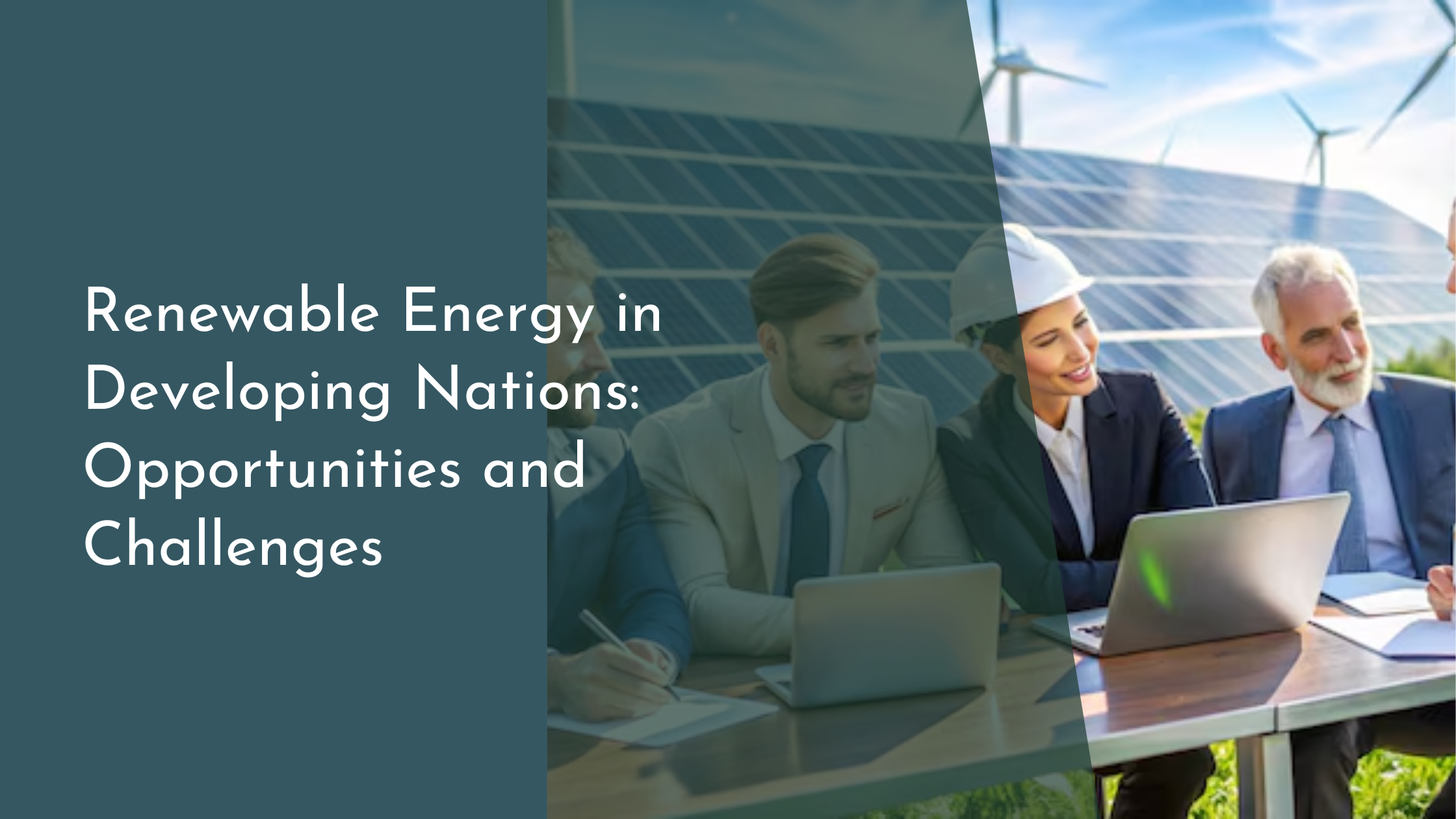Renewable Energy in Developing Nations: Opportunities and Challenges
In recent years, the global shift towards renewable energy has gained momentum, with developing nations increasingly joining the movement. These countries, often rich in natural resources but lacking in infrastructure, are uniquely positioned to capitalize on the benefits of renewable energy. As they strive for sustainable growth, renewable sources like solar and wind power present both opportunities and challenges. In this article, we explore how developing nations are harnessing these energy sources, overcoming obstacles, and envisioning a future powered by clean energy.
Harnessing Solar Power for Sustainable Growth
Developing nations, particularly those located in sun-rich regions, have a tremendous opportunity to harness solar power to fuel their growth. Solar energy offers an abundant and affordable resource for meeting the increasing energy demands without the harmful emissions associated with fossil fuels. Countries like India and Kenya have successfully implemented large-scale solar projects to electrify rural areas, improve energy reliability, and stimulate local economies. These initiatives not only provide immediate relief from energy shortages but also lay the groundwork for sustainable development in the future.
Moreover, decentralized solar solutions, such as solar home systems and mini-grids, empower rural communities by providing them with reliable and independent energy sources. These systems are often more cost-effective than extending traditional grid infrastructure and can be rapidly deployed to meet urgent energy needs. By investing in solar technologies, developing nations can reduce energy poverty, create jobs, and support local industries, all while mitigating the negative impacts of climate change.
Wind Energy: A Breath of Fresh Potential
Wind energy is another renewable resource with significant potential for developing nations. Countries with large coastal or open land areas can exploit wind power to diversify their energy mix and reduce dependence on fossil fuels. For instance, Brazil and Morocco have embraced wind energy by developing extensive wind farms that contribute substantially to their national energy grids. These projects not only supply clean electricity but also foster technological transfer and local expertise in renewable energy sectors.
In addition to grid-scale wind farms, small-scale wind turbines can be integrated into local communities, providing decentralized power solutions similar to solar systems. This approach is particularly beneficial for remote areas where traditional grid connectivity is not feasible. By tapping into wind energy, developing countries can enhance their energy security, reduce greenhouse gas emissions, and create sustainable economic growth opportunities, all while preserving their natural landscapes and biodiversity.
Overcoming Infrastructure and Investment Hurdles
While the potential of renewable energy in developing nations is immense, several infrastructure and investment challenges remain. Many developing countries face outdated or insufficient grid systems that cannot support large-scale integration of renewable energy. To overcome this, governments and international organizations must collaborate to modernize infrastructure, ensuring that it can accommodate and efficiently distribute renewable energy generation.
Financing is another significant hurdle, as the initial costs of renewable energy projects can be prohibitive for developing nations. Attracting investments requires creating favorable policy environments, including clear regulations, incentives, and financial instruments that de-risk investments. International partnerships and public-private collaborations can also play a critical role in providing the necessary capital and expertise to launch sustainable energy initiatives. By addressing these barriers, developing nations can unlock the full potential of renewable energy, fostering economic development and energy independence.
Conclusion: A Bright Future for Renewable Energy
Despite the challenges, the future of renewable energy in developing nations is remarkably promising. The combination of abundant natural resources, technological advancements, and growing global support for sustainable development positions these countries at the forefront of the clean energy revolution. By continuing to invest in solar, wind, and other renewable sources, developing nations can achieve energy security, reduce emissions, and improve the quality of life for their populations.
As the demand for energy continues to rise, the transition to renewable energy is not just an opportunity but a necessity for developing nations. By overcoming the existing hurdles and embracing the potential of solar and wind power, these countries can chart a path towards sustainable growth and environmental stewardship. The global community must support these efforts, ensuring that the benefits of clean, renewable energy are accessible to all, ultimately leading to a brighter and more sustainable future for everyone.

